Humans

Educators and Parents, Sign Up for The Cheat Sheet
Weekly updates to help you use Science News Explores in the learning environment
Thank you for signing up!
There was a problem signing you up.
-

-
 Health & Medicine
Health & MedicineNew brain scans may show if a concussion has not yet healed
Concussions change certain brain waves, and delta waves may be the best signs of when teens can return to competitive sports.
-
 Archaeology
ArchaeologyMinding your mummies: The science of mummification
In this science project, you will learn about the rituals and science of mummification by mummifying a hot dog.
-
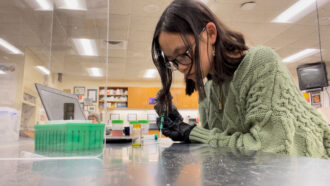 Health & Medicine
Health & MedicineHigh school scientists tackle community health and safety risks
Three finalists in the 2023 Regeneron Science Talent Search aim to improve suicide risk assessment, treatment of sickle cell disease and more.
-
 Science & Society
Science & SocietyHow daylight saving time throws off your internal clock
Turning the clock ahead knocks our bodies and brains out of sync with the sun. That leads to many potential health issues.
By Meghan Rosen -
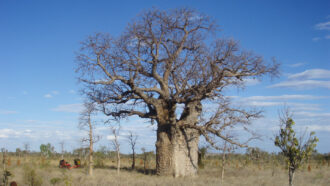 Archaeology
ArchaeologyCarvings on Australia’s boab trees reveal a people’s lost history
Archaeologists and an Aboriginal family are working together to find and document a First Nations group’s lost ties to the land.
By Freda Kreier -
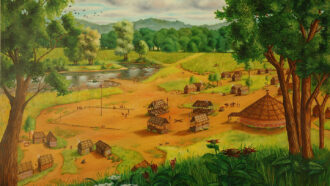 Archaeology
ArchaeologyAmerican democracy arrived long before Columbus did
Indigenous peoples of the Americas developed self-rule long before the pilgrims arrived or the U.S. Constitution was written.
By Bruce Bower -
 Health & Medicine
Health & MedicineExplainer: Why it’s easier to get sick in the winter
Low humidity helps viruses survive, and cold weather blunts some of the body’s immune responses — making colds and other viral infections more likely.
-
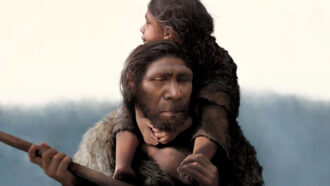 Humans
HumansLet’s learn about Neandertals
Neandertals are an extinct species closely related to modern humans. They made tools and jewelry, controlled fires and cared for their sick.
-
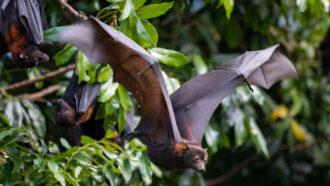 Environment
EnvironmentProtecting forests may help head off future pandemics
Hungry bats are more likely to shed harmful viruses to people or livestock when they spread out to hunt food. Conserving forests may limit this risk.
-
 Brain
BrainThe pandemic prematurely aged teens’ brains
A small study showed certain structural changes that appeared three to four years early. Normally, premature aging of the brain is not a good sign.
By Freda Kreier -
 Humans
HumansWhen it comes to dance, it’s all about the bass
During a concert, people danced more when they were bathed in sounds that were too low for their ears to hear.